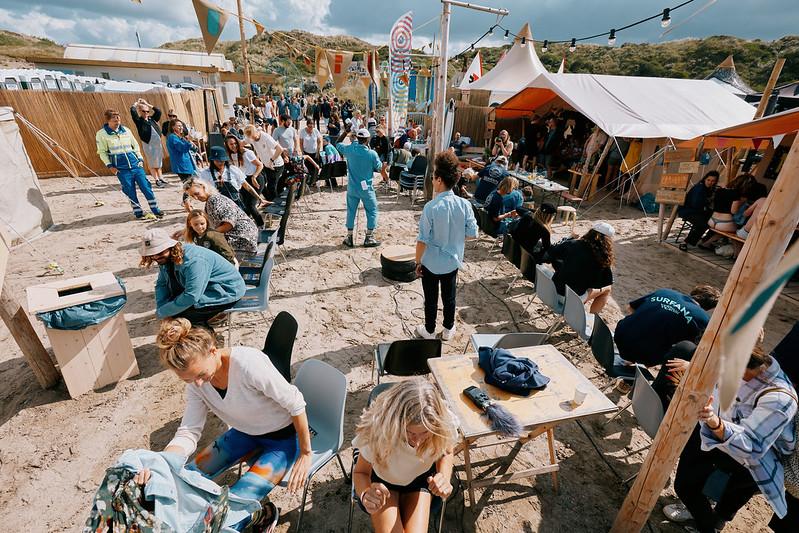Within the four-year programme 'Expedition to planet B', Waag takes a critical look at the values at the core of our economic system, which determine the way our world functions. Growth, profit maximisation and ever-increasing consumption: that's what the current system is all about. But this is not sustainable for people and planet. Wealth is unfairly distributed. Can't we change that? And where does this greed come from?
Waag speaks to Arne Hendriks, artistic researcher. His work in recent years has focused on 'de-growth'. Last year, he presented the Hara Hachi Bu Dorp at Dutch Design Week, which refers to the Japanese principle of stopping to eat when you are eighty percent full. Currently, Arne Hendriks' artistic research project The Incredible Shrinking Man focuses on reprogramming our initial reactions to growth. Can we also change the urge to always grow into less? Exploring how we as a society deal with money, value, scarcity and abundance, Arne Hendriks, together with Waag, developed 'Musical chairs, but different'. You'll find this installation from 22 to 30 October at Dutch Design Week 2022 in Eindhoven.
Arne, how would you introduce yourself?
I'm an artistic researcher. This means I use the freedom I have as an artist to research things that interest me. For over a decade, hat has been our irrational desire for economic growth for me. On the one hand, it is a desire that has huge implications for the health of life on earth, and that's what makes it urgent for me. On the other hand, our desire also defines us as a species, and thus it is also an examination of human beings. I am hopeful that humans can shape their desire in a way that balances it with the survival of the planet.
'While we dance and have fun, we are programmed to be selfish.'
Together with Waag, you have developed the concept of 'Musical chairs, but different'. Can you explain what you think it's about?
There is a form of musical chairs in many cultures. A group of people dance to music around a number of chairs, the premise being that there is always one chair less than there are dancers. When the music stops, you have to sit down as quickly as possible. Those who can't get a chair are no longer allowed to participate. In fact, you'll learn, often at a young age, to compete with others for scarce resources. You could thus call musical chairs a kind of economic-ideological choreography. As we dance and have fun, we are programmed to be selfish.
Where does the idea of musical chairs come from?
The idea is to deconstruct the archaic musical chairs and organise a dance in which we change the rules in different ways. For example, you can add one chair too many, and see how the dance develops then. Then, from the observations about the current economic system, we want to engage in a conversation with the participants. It's quite simple, actually. The idea came about during a workshop in collaboration with Design Academy students at MU in Eindhoven around the Japanese motto of eating only eighty percent of what you can eat at meals, and thus saving twenty percent space in your stomach. On the island of Okinawa, the older generation is convinced that this way of eating is the reason they grow so old. And that could well be the case.
Curious about musical chairs? Drop by at the DDW in Eindhoven. You will find the chair dance every day of the DDW at the Ketelhuisplein. With music by Benjamin Fro and spoken word by Elten Kiene.

Musical chairs, but different
We all know the game of musical chairs. Even as a child, you already learn that there is not enough room for everyone during the game. This creates competitiveness, stress and a sense of victory when you get a spot. But what if we reverse the rules of the game?
Musical chairs as a metaphor for the economy: there is enough for everyone, yet we create scarcity and shortages for some and abundance for others. Surely there must be another way? During Musical chairs, but different by Waag and Arne Hendriks, we explore how we deal with money, value, scarcity and abundance. Together, we explore our own reactions on created scarcity, abundance and the enormous drive to want to 'win' at the expense of others.
Musical chairs is part of Waag's expedition to planet B, in which we look at whether we can change the rules of the game. How would we design a planet with an open, fair and inclusive future for all? By using the imagination of a non-existent planet, we work towards change in the here and now.
Musical chairs, but different was previously shown at Surfana Festival and the Better Future Now Festival.


